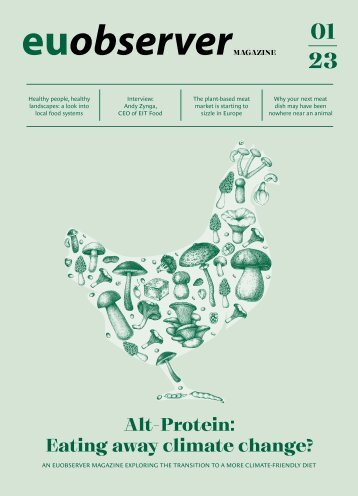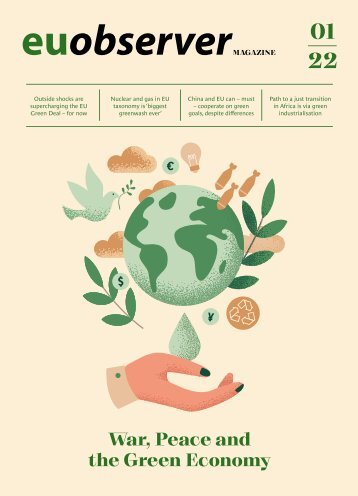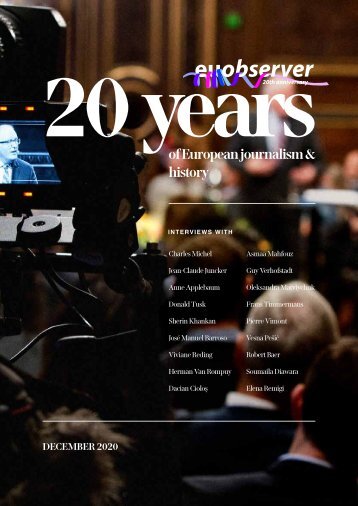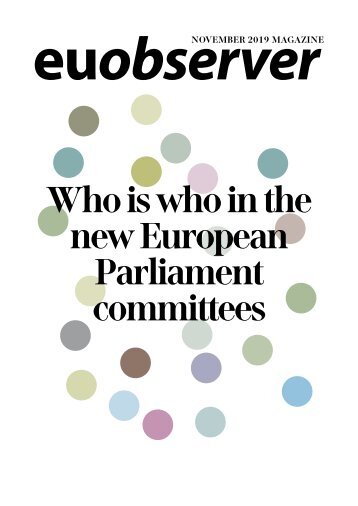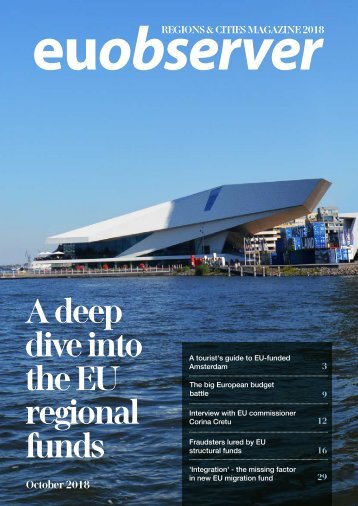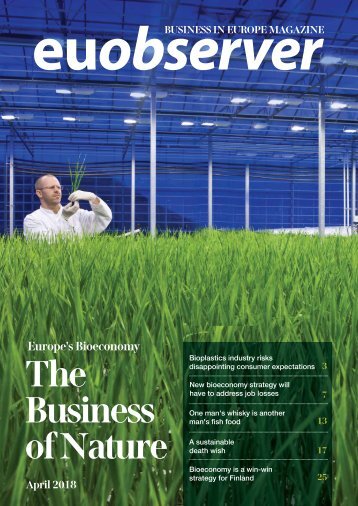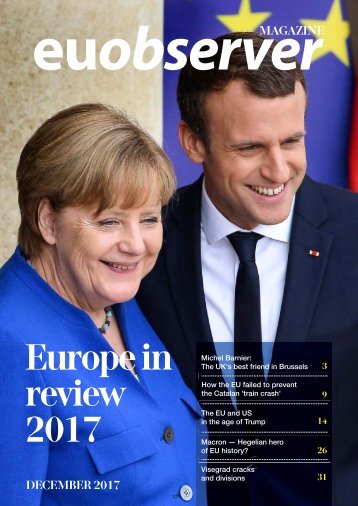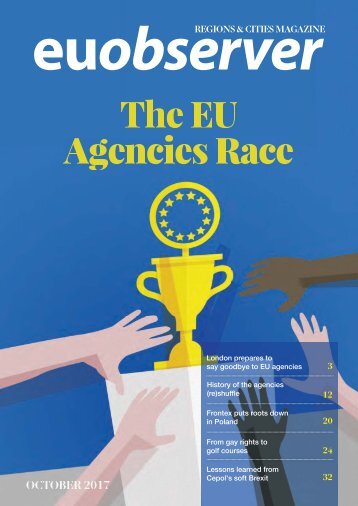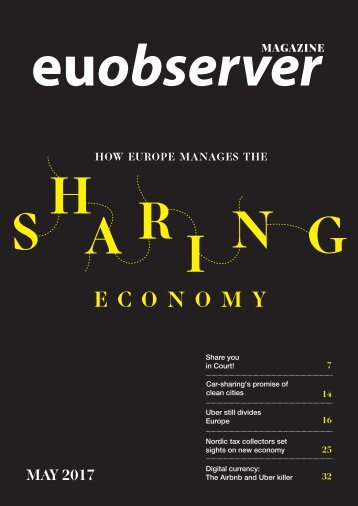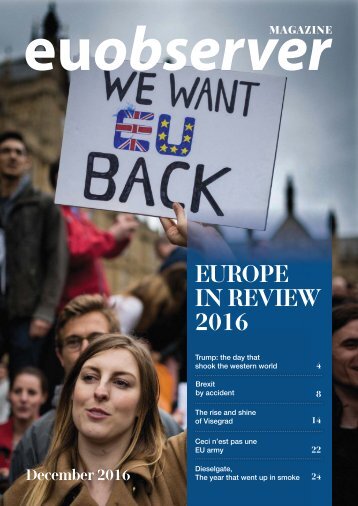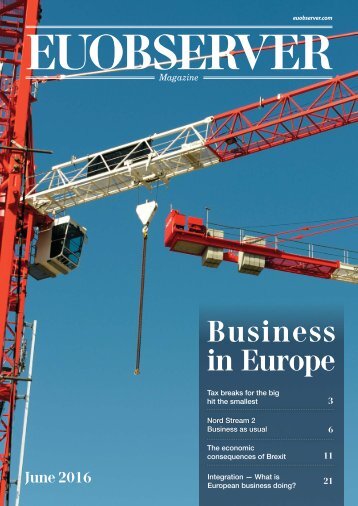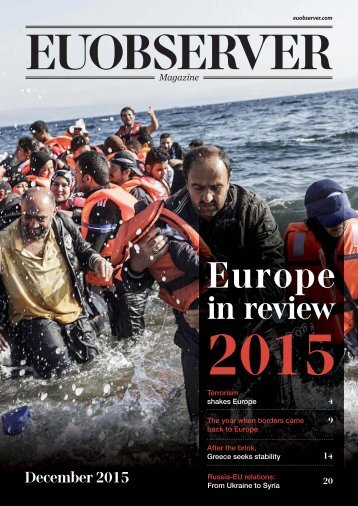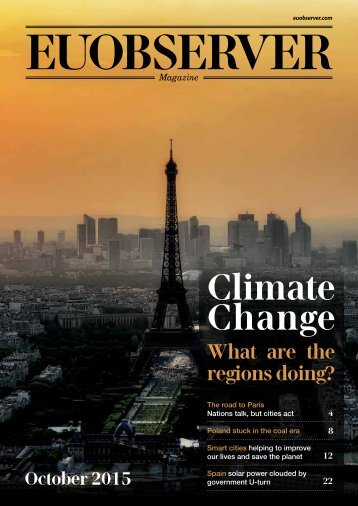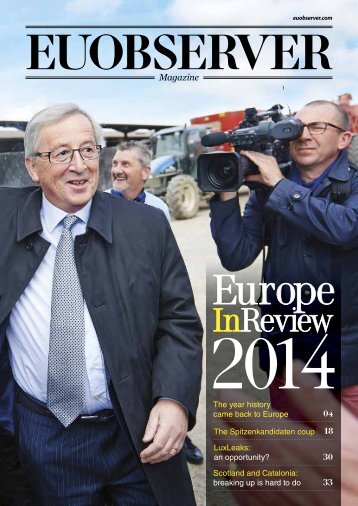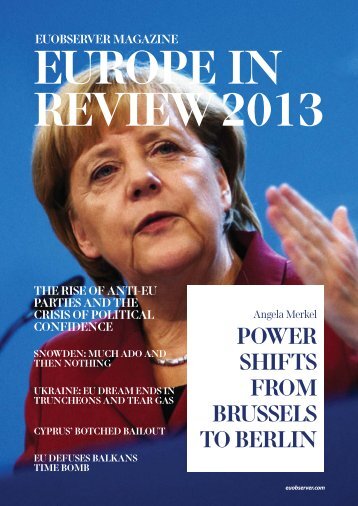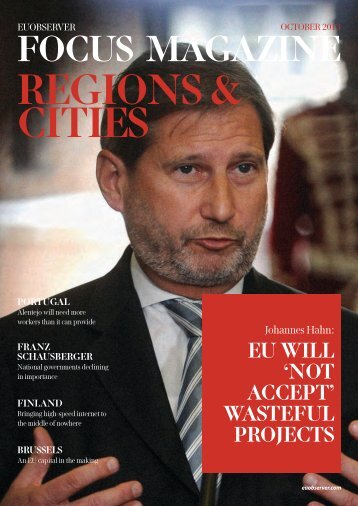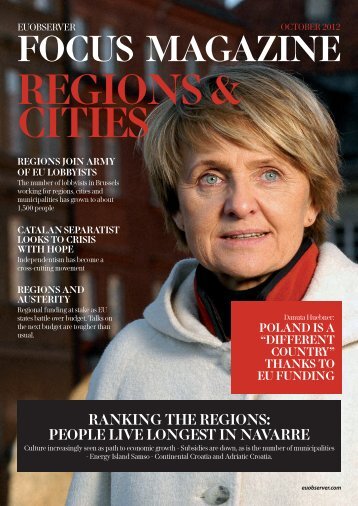European Parliament Elections 2019
- Text
- European
- Parliament
- Elections
- Meps
- Parliamant
- Brussels
- Strasbourg
- Russia
- Plenary
- Euobserver
candidacy tells voters
candidacy tells voters that the party is on the side of those "who do not accept the growing contradiction between wealth and poverty". He added the party will fight for preventing a "militaristic" EU, for environmental sustainability and social responsibility. THE ‘MAYBE’ CANDIDATES Brexit negotiator Michel Barnier (l) and Dutch prime minister Mark Rutte are officially not candidates - but often mentioned as possible late contenders. Photo: Council of the European Union and a eurosceptic. He has little chance of becoming the commission president. There is also the question what will become of his political group, the European Conservatives and Reformists, as the UK's Conservatives are leaving the EU, and Poland's ruling Law and Justice (PiS) may team up with Italy's far-right leader, Matteo Salvini. Ska Keller (b.1981) and Bas Eickhout (b.1976), Greens National Parties: Alliance 90/The Greens, and Groenlinks (Germany and the Netherlands) Both MEPs for the Green group, Keller and Eickhout aim to bring an alternative to the rise of populism while defending EU values and promoting a leftist economic policy that would put human well-being at the centre of economic policy. The urgent need to tackle climate change also puts the Greens in a favourable position, following 2018's heatwave and the subsequent Green 'surge' across some EU member states. However, since there are only a few member parties in the eastern and southern parts of Europe, it is unlikely the Greens could produce such an unprecedented surge at the ballot box to give them the next commission chief. Violeta Tomic (b.1963) and Nico Cue (b. 1956) National Parties: Levica/no listed affiliation At the end of January 2019 the European left (part of the far-left parliamentary group) nominated a Slovenian MP Violeta Tomic from the Levica party and former secretary general of the Metalworkers' Union of Belgium, Nico Cue as their lead candidates. The leader of European Left, Gregor Gysi said that their Michel Barnier, EPP (b.1951) National Party: Les Republicains (France) Barnier has repeatedly ruled out running for the top job, but the suave and unruffled French politician enjoys broad support, at least within the EU bubble. He served as a minister in several positions, and French commissioner, later losing to Jean-Claude Juncker in the 2014 EPP contest for the lead candidate position. In 2016 Barnier returned to Brussels as the EU's chief Brexit negotiator. He is credited with a methodological negotiation strategy that kept the EU-27 united throughout the talks, a rare achievement on any issue. He also hails from the EU's powerhouse EPP, which gives him an advantage, but he (so far) lacks the support of his own president, Emmanuel Macron. Mark Rutte, Liberals (b.1967) National Party: People's Party for Freedom and Democracy (Netherlands) Rutte has been prime minister of the Netherlands since 2010, which is an achievement in itself, considering the fragmented political landscape in the country. He has been credited with keeping the far-right and populist forces at bay in his own backyard after reinforcing his party's leading position at the 2017 election against Geert Wilders. He nevertheless did so by pushing his own party somewhat to the right. After seeing the political turmoil following the Brexit referendum in the UK, Rutte has emerged as one of the strongest pro-business voices remaining in the bloc. He has toned down his euroscepticism, while uniting fiscally-conservative and liberal trading countries to defend their interests as the UK leaves the EU. There has been speculation that Brussels might be a good exit for him from Dutch politics, although he has not hinted so far that he is interested. Of course, the liberal nomination could be always upset by Denmark's competition commissioner, Margrethe Vestager, a favourite for many in Brussels for her no-nonsense, pro-European stance. For her part, Vestager has said she would like to continue as competition commissioner. 14 — EUROPEAN PARLIAMANT ELECTIONS 2019
The travelling CIRCUS Twelve times a year, MEPs relocate from Brussels to Strasbourg - and then back again. Not by choice, but because a treaty forces them to - and it is costing taxpayers more than €100m per year. By Peter Teffer The European Parliament building in Strasbourg Photo: European Parliament Symbolism matters in politics and there is perhaps no greater negative image shaping perceptions of the European Union than what has been dubbed the 'travelling circus': twelve times a year members of the European Parliament relocate from Brussels to Strasbourg for a plenary session. "Their goal is to destroy Europe by showing that Europe is inefficient," she told EUobserver. By contrast, the Campaign for a Single Seat for the European Parliament, which Corazza Bildt chairs, is "pro-Europe and pro-efficiency", but not "anti-Strasbourg". It is not just MEPs that have to change their working location each month by some 400 kilometres to the south-east, but also civil servants from other EU institutions, lobbyists, and journalists. The French city of Strasbourg is not as well-connected to other European capitals as Brussels is. Centre-right Swedish-Italian MEP Anna Maria Corazza Bildt Photo: Single Seat campaign If the plenary no longer met in Strasbourg, the parliament alone could save €114m per year, according to a 2015 European Court of Auditors report. And the commute is used by eurosceptics as evidence of the EU's lack of efficiency. Earlier this year, Italian deputy prime minister Luigi di Maio, of the Five Star Movement, decried it as a "symbol of arrogance". His argument was why should Italy's government be scolded for breaking EU budget rules, when the EU's own parliament continued with this "waste of money". Eurosceptics "hijacking" the Strasbourg argument is exactly what centre-right Swedish-Italian MEP Anna Maria Corazza Bildt is trying to avoid. 15 — EUROPEAN PARLIAMANT ELECTIONS 2019
- Page 1 and 2: EUROPEAN PARLIAMANT ELECTIONS 2019
- Page 3 and 4: European elections 23-26 may 2019 t
- Page 5 and 6: Currently, the largest political gr
- Page 7 and 8: The meeting of the bureau, chaired
- Page 9 and 10: Frans Timmermans fired up at the So
- Page 11 and 12: In February 2018 it adopted a text
- Page 13: THE CANDIDATES Manfred Weber, EPP (
- Page 17 and 18: The 'travelling circus' costs the E
- Page 19 and 20: As this magazine went to print, the
- Page 21 and 22: EU commissioner Miguel Arias Canete
- Page 23 and 24: German MEP Rainer Wieland (r) oppos
- Page 25 and 26: Russian leader Vladimir Putin with
- Page 27 and 28: that no one may be insulted or disc
- Page 29 and 30: He invited the World Congress of Fa
- Page 31 and 32: Europa' memes to provoke tension. B
- Page 33 and 34: Political science professor Ariadna
- Page 35 and 36: The gender gap at EU elections Prop
- Page 37 and 38: On average, fewer women vote in the
- Page 39 and 40: STAKEHOLDER Follow F4E on Twitter @
- Page 41 and 42: JULY - A new European Commission pr
- Page 43 and 44: EUobserver Making sense of the EU G
Inappropriate
Loading...
Embed
Loading...

